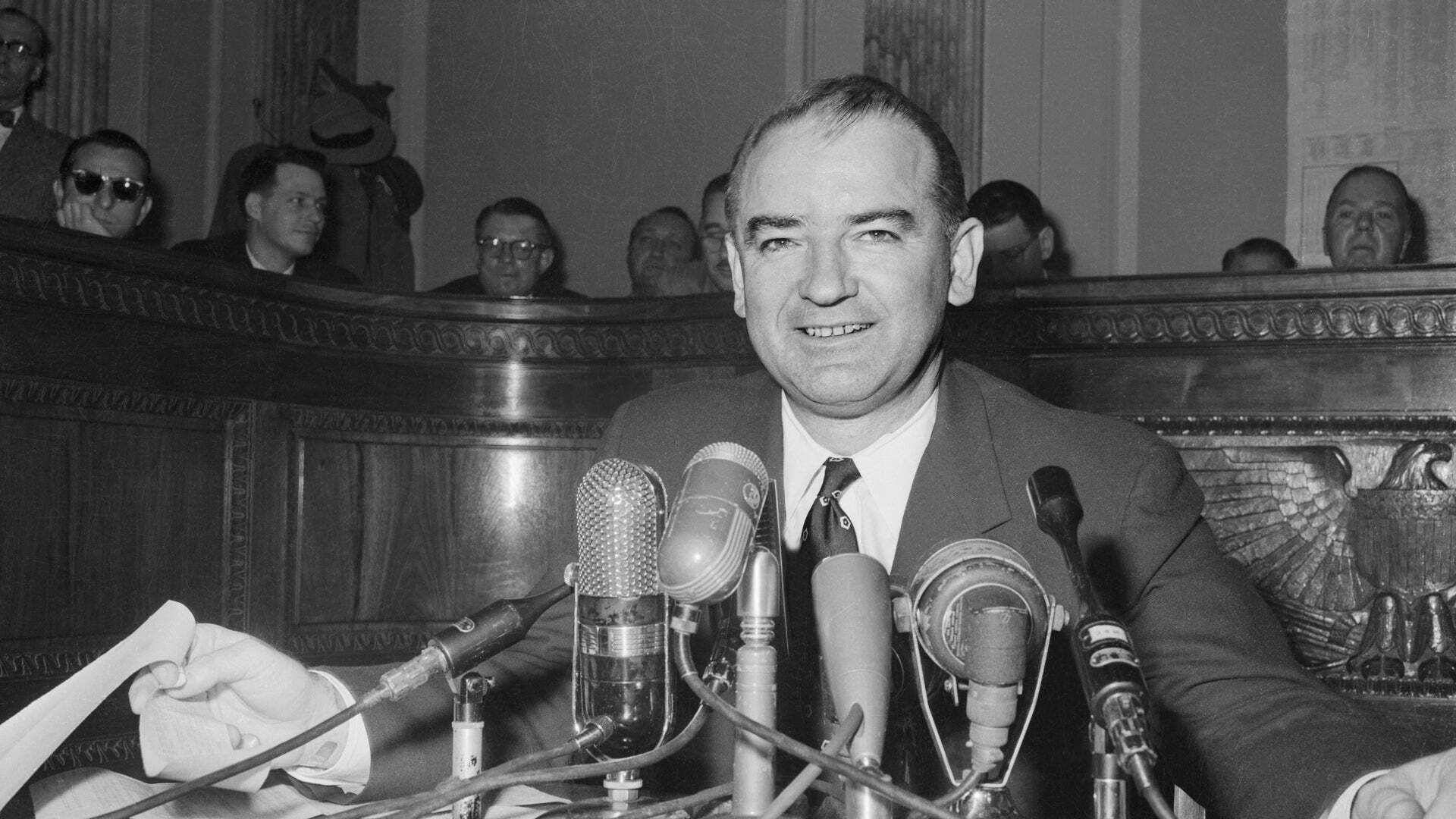
McCarthyism was a period of intense anti-communist suspicion in the United States during the early 1950s. Named after Senator Joseph McCarthy, it involved aggressive investigations and accusations aimed at rooting out alleged communists in government, entertainment, and other sectors. But what exactly was McCarthyism? It was marked by fear, paranoia, and the violation of civil liberties. People were blacklisted, careers were destroyed, and lives were upended based on often flimsy evidence. This era left a lasting impact on American politics and culture, serving as a cautionary tale about the dangers of mass hysteria and the abuse of power. Let's dive into 28 intriguing facts that shed light on this controversial chapter in history.
Key Takeaways:
- McCarthyism was a time in the 1950s when Senator Joseph McCarthy accused people of being communists without evidence, leading to fear, job loss, and violations of civil liberties.
- McCarthyism had a big impact on American society, destroying careers, affecting the entertainment industry, and leading to self-censorship and government monitoring. It serves as a warning about the dangers of unfounded accusations.
What is McCarthyism?
McCarthyism refers to the period in the early 1950s when U.S. Senator Joseph McCarthy led a campaign against alleged communists in the government, entertainment industry, and other sectors. This era was marked by intense suspicion, accusations, and a climate of fear.
- McCarthyism began in 1950 when Senator Joseph McCarthy claimed he had a list of communists working in the State Department.
- The term "McCarthyism" was coined by political cartoonist Herbert Block in 1950.
- McCarthy's accusations led to investigations by the House Un-American Activities Committee (HUAC).
- Many people accused of being communists were blacklisted, losing their jobs and reputations.
- The Hollywood Ten, a group of screenwriters and directors, were among the first to be blacklisted for refusing to testify before HUAC.
- McCarthyism targeted not only government officials but also teachers, union leaders, and entertainers.
- The fear of communism during this period was partly fueled by the Cold War between the United States and the Soviet Union.
- McCarthy's tactics included making accusations without proper evidence, leading to the term "witch hunt" being associated with his actions.
- The Army-McCarthy hearings in 1954 were televised, exposing McCarthy's aggressive and unsubstantiated tactics to the public.
- McCarthy's influence waned after the Army-McCarthy hearings, and he was censured by the Senate in December 1954.
The Impact of McCarthyism on American Society
McCarthyism had a profound impact on American society, affecting various aspects of life and creating a culture of fear and suspicion.
- Many careers were destroyed due to unfounded accusations of communism.
- The entertainment industry was heavily affected, with numerous actors, writers, and directors blacklisted.
- Academic freedom was compromised as educators were scrutinized for their political beliefs.
- Civil liberties were often violated, with people being denied due process.
- The fear of being labeled a communist led to self-censorship and conformity.
- Some people accused of communism were imprisoned for refusing to cooperate with investigations.
- The Red Scare led to the creation of loyalty oaths for government employees.
- McCarthyism contributed to the rise of anti-communist sentiment in the United States.
- The period saw an increase in surveillance and government monitoring of suspected communists.
- The legacy of McCarthyism continues to influence American politics and culture, serving as a cautionary tale about the dangers of unfounded accusations and mass hysteria.
Key Figures and Events in McCarthyism
Several key figures and events played significant roles in the rise and fall of McCarthyism.
- Senator Joseph McCarthy was the central figure, known for his aggressive tactics and unsubstantiated claims.
- Roy Cohn, McCarthy's chief counsel, was instrumental in conducting investigations and interrogations.
- Edward R. Murrow, a respected journalist, criticized McCarthy's methods in a famous broadcast, helping to turn public opinion against him.
- The Hollywood Ten were among the first to be blacklisted, refusing to testify before HUAC and serving prison sentences for contempt of Congress.
- The Army-McCarthy hearings in 1954 were a turning point, revealing McCarthy's lack of evidence and leading to his downfall.
- President Dwight D. Eisenhower privately opposed McCarthy but was cautious in publicly condemning him.
- The Tydings Committee investigated McCarthy's claims and found them to be largely baseless, further discrediting him.
- The Senate's censure of McCarthy in December 1954 marked the end of his influence and the decline of McCarthyism.
The Lasting Impact of McCarthyism
McCarthyism left a deep mark on American history. It wasn't just about hunting communists; it was a time of fear, suspicion, and ruined lives. People lost jobs, reputations, and even their freedom based on flimsy evidence or mere accusations. The term "witch hunt" became synonymous with McCarthy's tactics.
This period taught us the dangers of unchecked power and the importance of protecting civil liberties. It also showed how fear can be manipulated to control and divide. Today, McCarthyism serves as a cautionary tale, reminding us to stay vigilant against similar threats to democracy.
Understanding this era helps us appreciate the value of due process and the need to stand up against injustice. McCarthyism may be a chapter in the past, but its lessons are timeless. Let's remember them to ensure history doesn't repeat itself.
Frequently Asked Questions
Was this page helpful?
Our commitment to delivering trustworthy and engaging content is at the heart of what we do. Each fact on our site is contributed by real users like you, bringing a wealth of diverse insights and information. To ensure the highest standards of accuracy and reliability, our dedicated editors meticulously review each submission. This process guarantees that the facts we share are not only fascinating but also credible. Trust in our commitment to quality and authenticity as you explore and learn with us.
